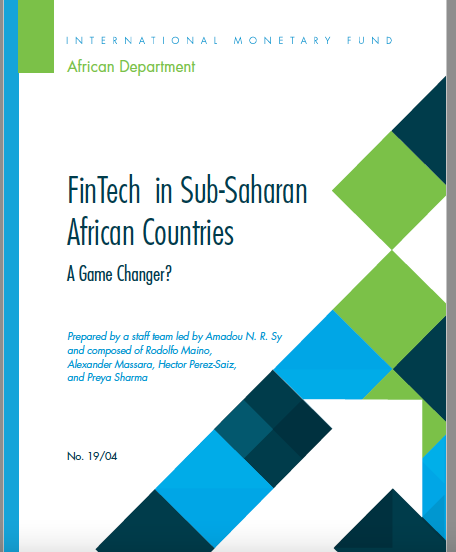
Financial technology (FinTech) is a major force shaping the structure of the financial industry in sub-Saharan Africa. New technologies are being developed and implemented in sub-Saharan Africa with the potential to change the competitive landscape in the financial sector. FinTech challenges traditional structures and creates efficiency gains by opening up the financial services value chain, although it also raises concerns about new vulnerabilities. Today, FinTech is emerging as a technological enabler in the region, improving financial inclusion and serving as a catalyst for innovation in other sectors, such as agriculture and infrastructure.
Sub-Saharan Africa has become the global leader in mobile money transfer services, spurring widespread access to financial services. Although sub-Saharan Africa has lagged behind the rest of the world in access to finance, some countries in the region are now global leaders. There is a wide degree of differences across the region, with East Africa leading in mobile money adoption and usage. Built on an appropriate pricing strategy to attract customers, suitable regulation, and a reliable and trustful network, Kenya represents today one of the most successful cases regarding the use of mobile money.
FinTech may carry significant gains for financial inclusion and deepening by improving the level of efficiency of the financial sector. FinTech provides avenues to extend access to credit as new technologies help overcome information barriers and lower the cost of cross-border transfers. In particular, pressures on correspondent banking relationships could be partly remedied by the use of new technologies if the new systems can satisfy requirements to avoid money laundering and the financing of terrorism. Furthermore, whereas the current technologies are still facing number of challenges, such as scalability and high energy consumption, future distributed ledger technologies could enhance efficiency, security, and transparency of payment systems in sub-Saharan Africa, thus lowering trading costs.
There is a need to balance the trade-off between the benefits that FinTech technologies may generate and potential added risks and vulnerabilities.
Given the lower levels of financial inclusion, bank competition, and macro-financial linkages in sub-Saharan Africa relative to other regions, regulators and central banks could potentially benefit from considering FinTech as a leapfrogging opportunity to foster inclusive economic growth and development.
At the same time, these new technologies and business models present new risks that would need to be addressed with suitable regulatory frameworks.
Policy measures are needed to reap the potential benefits of FinTech while managing associated risks. First, policymakers need to fill the large existing infrastructure gap in the region, starting with electricity and internet services.
Second, there is a need to address the perennial race between fast-moving innovation and the slower pace of regulation. Third, policymakers should look beyond the potential benefits of FinTech in just the financial sector
to consider the possible impact on employment and productivity, the digital economy, and more broadly, the scope for much needed structural transformation.
